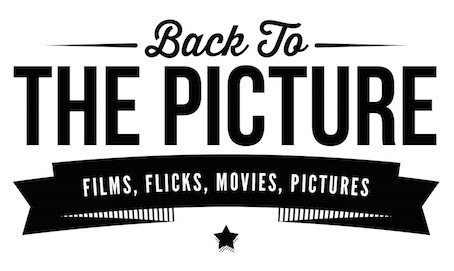When it comes to watching films, we all want to get the most out of our time. Whether we’re watching an insanely gripping and emotionally investing drama, a balls-to-the-wall action flick, or a great comedy to laugh ourselves silly to, settling in to experience a movie is a relatively big commitment nowadays, especially when most people’s free time is a luxury, and the money it costs to see or own a film is getting exponentially more expensive by the day. But more often than not, time is the exact thing that makes or breaks a film, and for the past few years it seems like the lengths of films have skyrocketed from “feature length” (about an hour and a half) to upwards of two hours and beyond, possibly even longer in some cases. The length of a movie can directly ruin or elevate a film in a way that the content of the film itself can’t, either helping to keep us in a world that we don’t want to leave or shackling us to our seats with a story that we could care less about before we’ve even hit the halfway mark. While I myself like a good, long story to invest in, it seems like recent films can’t help but give us a time commitment worth our hard earned cash whether the story and characters warrant it or not. Some films seem far too short for their own good while others waste precious minutes on scenes that, quite frankly, needed to be cut down or taken out entirely. Luckily, this isn’t always the case, but it’s hard to ignore the fact that the length of movies are a huge factor in the quality of films and their overall impact on the person who watches them, for better or worse.
Many different films come to mind when I think of runtimes done well and runtimes that pretty much ruin the movie watching experience. I recently had a chance to sit down and re-watch all three Lord of the Rings films – the three plus hour extended editions mind you – and while I have to admit I might have dozed off a few more times than I care to admit (Return of the King took me literally two days to get through), I never felt like I was wasting my time or that the films in question were at a loss because of the added minutes. Compared to the theatrical versions, the extended editions are widely regarded as being the superior cuts due to the more in depth and interesting look at the world and denizens of Middle-Earth, and while the original versions are by no means bad – far from it – the ability to be able to add and adjust these films from their original state does wonders to pull you into the story of the One Ring and the plight of the characters we follow. With more scenes dedicated to fleshing out certain plot points and character beats, these extended editions are a prime example of how to do a long movie right, even if pacing gets thrown out the window from time to time. It’s here that we truly get to invest in the stories of these characters and the predicaments they find themselves in. No one gets shafted in favor of the more “popular” storylines, and not one scene is wasted just to fill space. While it makes sense that a studio wouldn’t want to release a four-hour film into theaters, it’s interesting to see how much was taken out for the theatrical release only to have it spliced back in later on.
Other films that follow in the “longer is better” concept is a more recent release in Batman vs Superman: Dawn of Justice. Say what you will about the movie itself (I’m a fan, sorry not sorry), but the theatrical release always seemed to be lacking in coherency and story flow to a point that a lot of people couldn’t follow the film and enjoy it the way they should have. Flash-forward to the home release of the film and the three plus hour Ultimate Edition that came with it, and now we have a more consistent, full narrative that solves a decent amount of the originals problems (unfortunately not Jessie Eisenberg’s Lex Luthor, however), while at the same time giving fans what they missed the first time around. Character motivations are expanded, important talking points are more in depth, and story beats connect in a more organic and interesting way. The film itself might still be middling to some, but it can’t be denied that the longer runtime made it better and more enjoyable all around.
Same goes for the most recent flop at the box office, Blade Runner 2049. While I really enjoyed the film and everything in it, the near three-hour runtime is a huge problem that even I second-guessed at one point, and what still hinders me from seeing it again to this day. There’s no doubt that this film is justified in having a longer runtime considering that it felt like I was living inside the world the filmmakers created as opposed to being an observer to it, but I can completely understand people not wanting to spend practically the entire day in the theater, especially if they aren’t digging what they’re seeing up on screen to begin with. That being said, the longer a movie is doesn’t necessarily make it better off. Older animated Disney films are a perfect example of how to make a shorter film feel full and meaningful. With most of them clocking in at less than an hour and a half, these classics still allow us to reap the full benefits of character development, story progression and a sense of wonder that many films from the past few years can barely capture, let alone replicate.
Long films that justify an epic runtime are usually pretty few and far between, with shorter films that work on all levels seemingly being just as rare, but more often than not, a longer runtime can spell disaster for a film that might have been pretty good otherwise had twenty or thirty minutes been cut before the final edit was locked in. For example, I had the misfortune of convincing myself to see Transformers: The Last Knight over the summer, and while I think that movie was absolute trash (sorry Transformer fans, but this one’s hard to defend) it was the two and a half hour runtime that almost made me walk out of the theater. Nothing felt justified, no character was interesting or important enough to spend more than a few seconds with and the action was so wall-to-wall that the excitement and longevity of it all made me roll my eyes and check my watch more than I probably should have. Couple that with the fact that the movie was just not all that good to begin with, and I began to wonder if a half hour to forty minutes could have been taken away to streamline the film to a point that it would have at least become tolerable to watch.
Overstaying your welcome is a huge issue that these blockbuster films have a hard time dealing with, especially when more attention is paid to the action side of things rather than anything story related. Biopics or historical dramas fall prey to this problem all the time, more so due to the fact that they have to tell an entire real life story from beginning to end with little wiggle room in between, but Christopher Nolan’s newest “based on a true story” flick Dunkirk came in at under two hours and was much better off because of it. It’s not that a long runtime is a bad thing; it’s just that it needs to be justified in a way that a lot of films simply don’t understand. Alien: Covenant was an interesting film until everything started to drag and tread water, A Cure For Wellness was bloated and paced weird leading up to an ending that justified none of the previous hours of story, and every time a new superhero film comes out there’s usually a few scenes here or there that just seem unnecessary. My point is, just because you can make a film longer, doesn’t mean it needs to be, and it’s an issue that doesn’t seem to be getting any better anytime soon, unless you’re a family film or comedy of course.
Film runtimes will always vary depending on genre, storytelling decisions and the ever-looming threat of studio involvement, but that doesn’t necessarily translate to what works best for the film itself. A two hour or less commitment is perfectly reasonable and gives the filmmakers enough time to properly pace each scene, build up and pay off story beats and character arcs, and throw in a bunch of great action or drama on top of it all. It’s a little frustrating watching a film knowing that shaving even ten minutes off of the runtime would make the film better, but it seems like not many filmmakers or studios care much either way. In the end, the film that gets shoved into theaters is usually the only film movie-goers will know, so if you only get one chance to impress, why waste it with a few extra minutes that aren’t worth anyone’s time?





